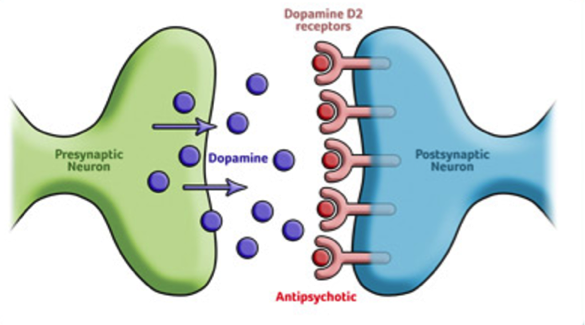Chronic smoking blackens your lungs, blocks your arteries, and causes bad breath. But how does excessive pregnant puffing affect the unborn child? Could the drag of a smoke while pregnant cause Tourette’s syndrome?
Between 1996 and 2002, the Danish National Birth Cohort (DNBC) interviewed, observed, and collected data about the lifestyle, health, and habits of nearly 100,000 pregnant Danish women. By October 2013, after re-interviewing, observing, and collecting new data from the Danish mother’s, the DNBC composed a complete data set of 73,076 women and their now teenage children.
In 2017, Dr. Browne and her team from the Icahn School of Medicine in New York studied the comprehensive Danish data to determine whether chronic smoking during pregnancy might cause Tourette’s syndrome, a neurological disorder responsible for chronic tic behaviours.
Before we delve into Dr. Browne’s findings, let’s first examine the symptoms of Tourette’s syndrome and how it affects the brain.
Tourette’s Syndrome and Tics
Doctors believe that Tourette’s syndrome arises from alterations in the development of brain circuits during pregnancy. Specifically, subtle changes may occur in the Thalamus, Basal Ganglia, and the Pre-Frontal Cortex. Tics, or sudden repetitive movements observed in patients with Tourette’s syndrome likely result from deficits in connectivity between these regions. Patients with Tourette’s syndrome display both physical and vocal tics over the course of at least one year.
Dr. Herrero and his associates from University of Murcia, Spain, explain that the Thalamus and Basal Ganglia sit at the bottom of the forebrain and help coordinate voluntary motor movements and behaviours. The two areas connect to the Pre-Frontal Cortex, the centre of higher reasoning. Dr. Herrero claims that together, the three regions aid working memory, decision-making functions, and voluntary movement.

According to Dr. Herrero, the Thalamus, Basal Ganglia, and the Pre-Frontal Cortex work together to coordinate voluntary movements
Source: http://proprofs-cdn.s3.amazonaws.com/images/FC/user_images/1406217/9806788916.png
Tic behaviours also likely occur because of altered dopamine levels.
Dr. Herrero explains that dopamine, a neurotransmitter or a chemical messenger in the brain, allows information to pass from one neuron to another. Altered dopamine levels likely reduce connectivity between brain regions. Altered dopamine may explain the reduced voluntary control, or tics behaviours, observed in Tourette’s patients.

Dopamine, a neurotransmitter, sends a chemical message from one neuron to another.
Source: https://www.themindfulcoach.com
The Study
The DNBC interviewed pregnant women at their 17th and 32nd week of pregnancy, and again six months after the birth of their child. During interviews, each mother disclosed whether or not she smoked. Researchers categorised the mothers’ daily cigarette consumption as either light or heavy. Light smokers puffed fewer than ten daily cigarettes, while heavy smokers dragged on more than ten.
The DNBC also collected data on the child’s sex, birth weight, mother’s age, mother’s pregnant body mass index (BMI), parental income, and parental alcohol, hashish and caffeine consumption. 73,076 of the participants possessed a complete set of data. Dr. Browne and her team or possibly influential variables from the complete data set to ensure no other factor influenced a diagnosis of Tourette’s syndrome.
Findings
The team linked the information from the DNBC with information from the Danish National Psychiatric Central Register (DNPCR). They discovered 906 reported cases of chronic tic behaviours or diagnosed Tourette’s syndrome among the teenage cohort.
Dr. Browne and her team confirmed prenatal smoking increases the risk of the child developing Tourette’s syndrome, stating, “Heavy smoking was associated with a 66% increased risk.”
Data from the DNPCR also showed increased links between chronic prenatal smoking and Attention Deficit Hyperactivity Disorder (ADHD). Children with ADHD display attention difficulties and hyperactive behaviour. Dr. Browne and her team claim heavy prenatal smoking doubled the risk of acquiring both ADHD and Tourette’s syndrome in the sample of teens.
Eight percent of mothers in the study confessed to heavy daily smoking during their pregnancy.
Smoking and the brain
Research suggests that prenatal exposure to nicotine affects foetal brain maturation. Affected children’s brain circuitry may wire unconventionally as a result. Their altered dopamine levels may cause neurons to fire with no target in sight.
Brain structures may also look different. Depleted behavioural and voluntary motor control observed in Tourette’s syndrome and ADHD might result from these brain re-structures.
References
Browne, H. A., Modabbernia, A., Buxbaum, J. D., Hansen, S. N., Schendel, D. E., Parner, E. T., Grice, D. E. (2016). Prenatal maternal smoking and increased risk for Tourette syndrome and chronic tic disorders. Journal of the American Academy of Child & Adolescent Psychiatry, doi:10.1016/j.jaac.2016.06.010 Herrero, M., Barcia, C., & Navarro, J. (2002).
Functional anatomy of thalamus and basal ganglia. Child’s Nervous System, 18(8), 386-404. doi:10.1007/s00381-002-0604-1 4 1
Published in Communicating Science. A text for the University of Toronto, 2019